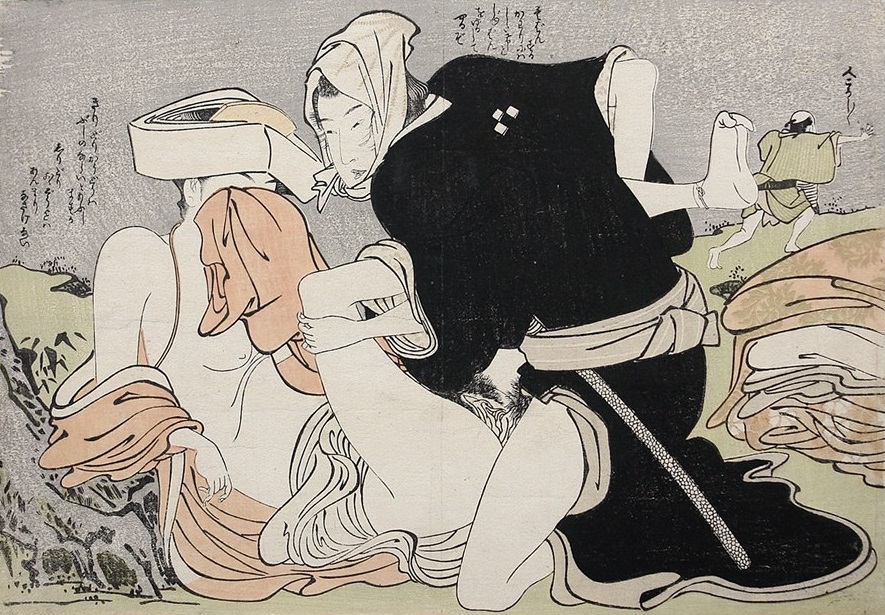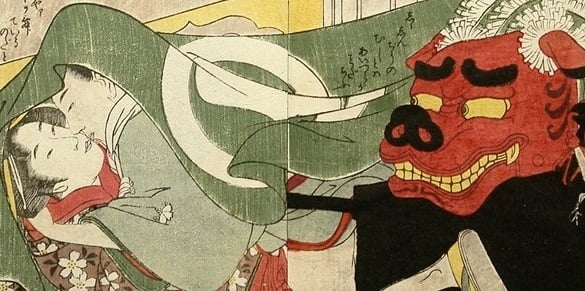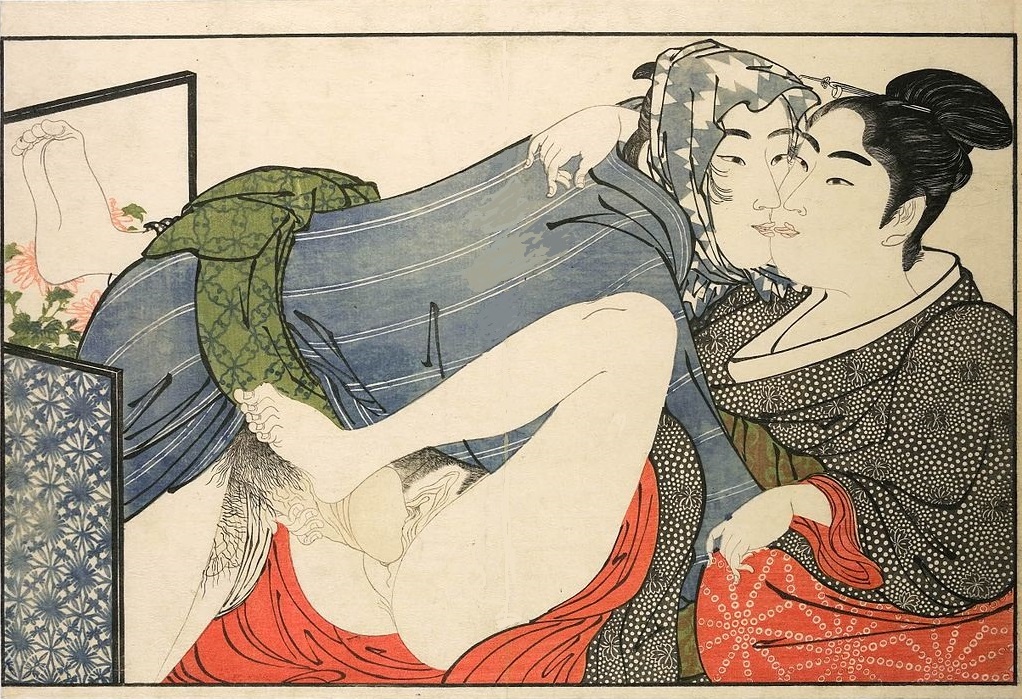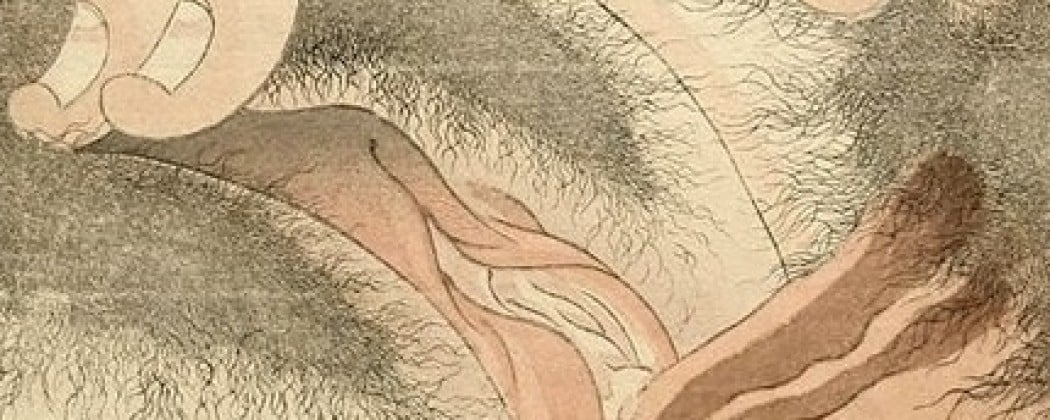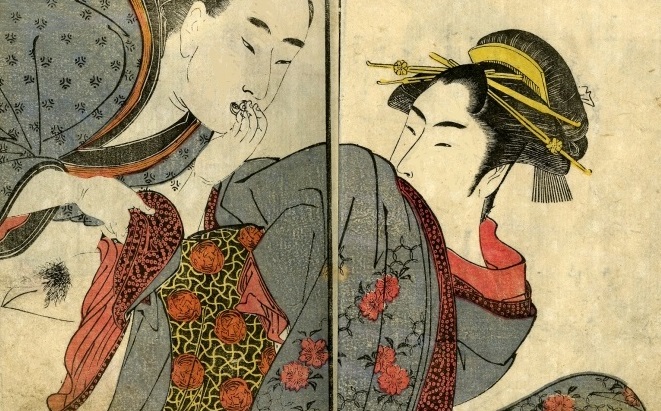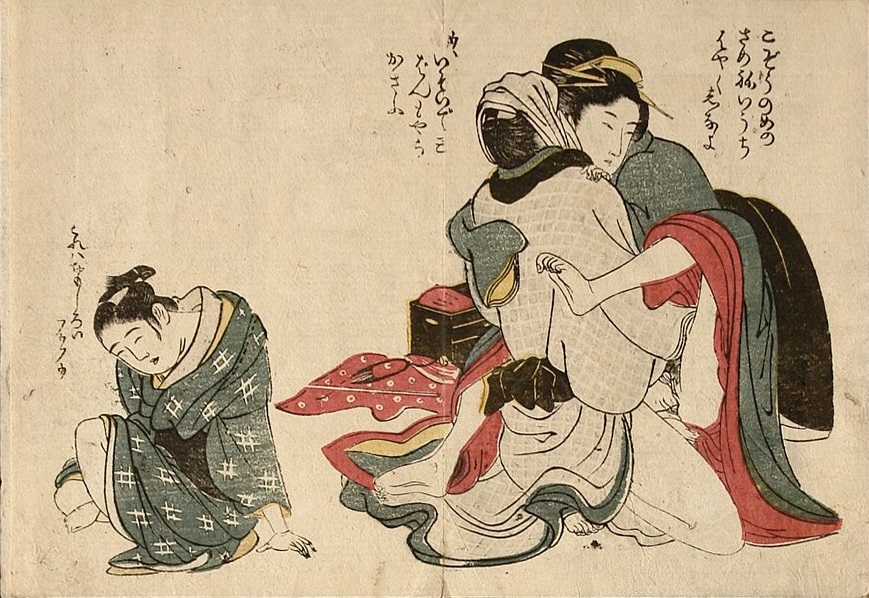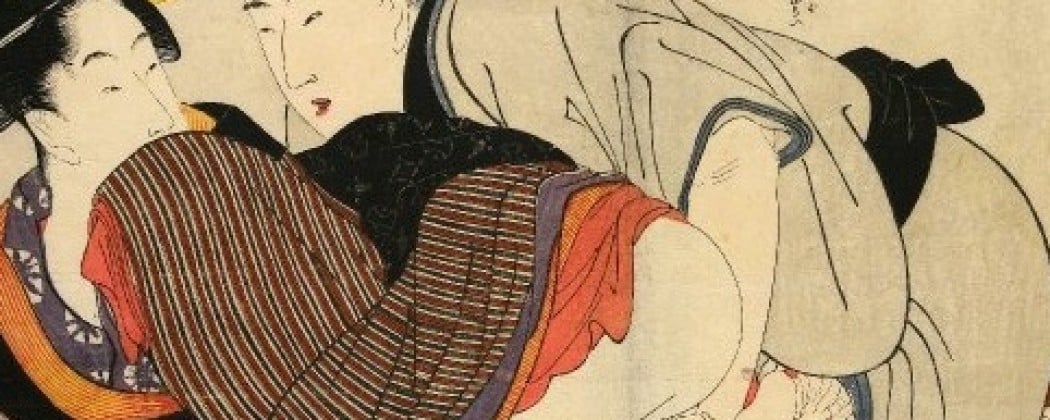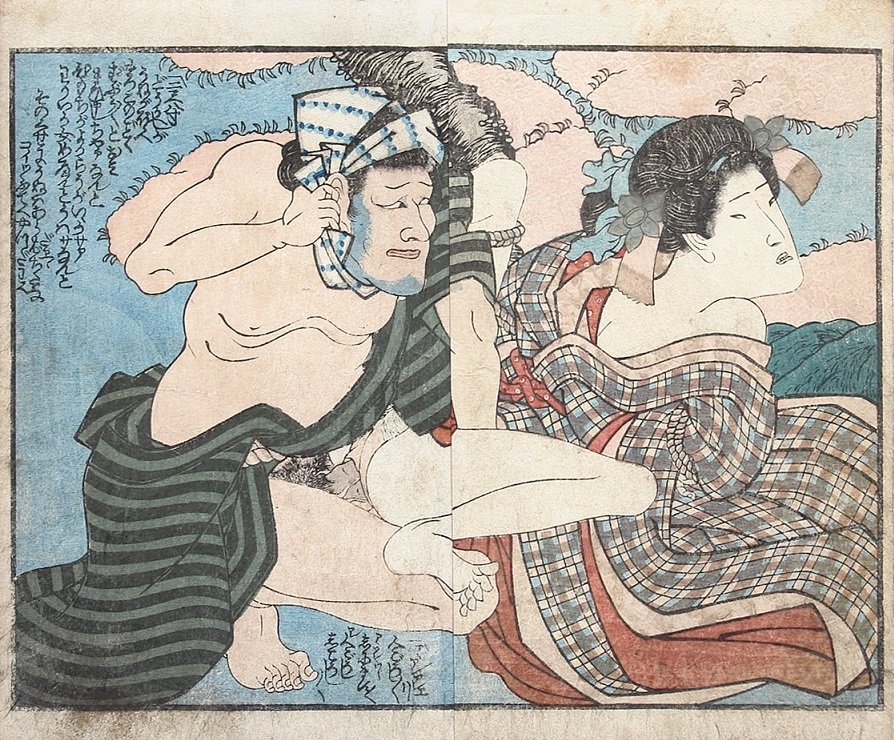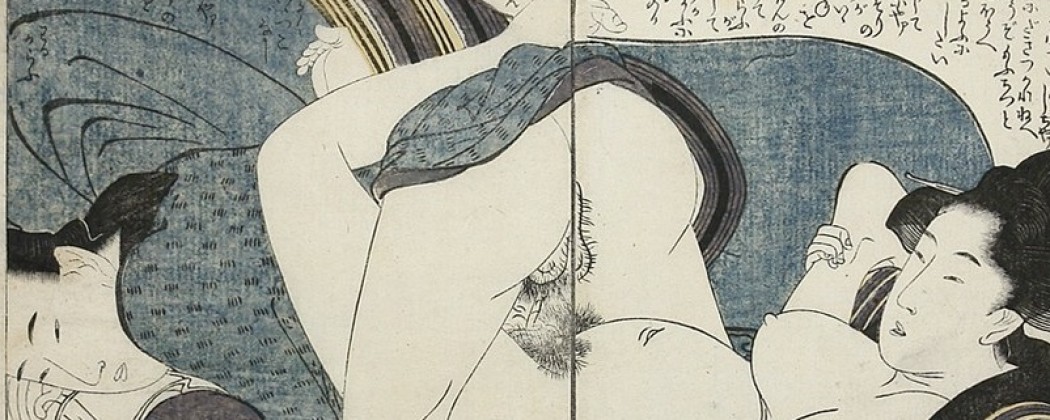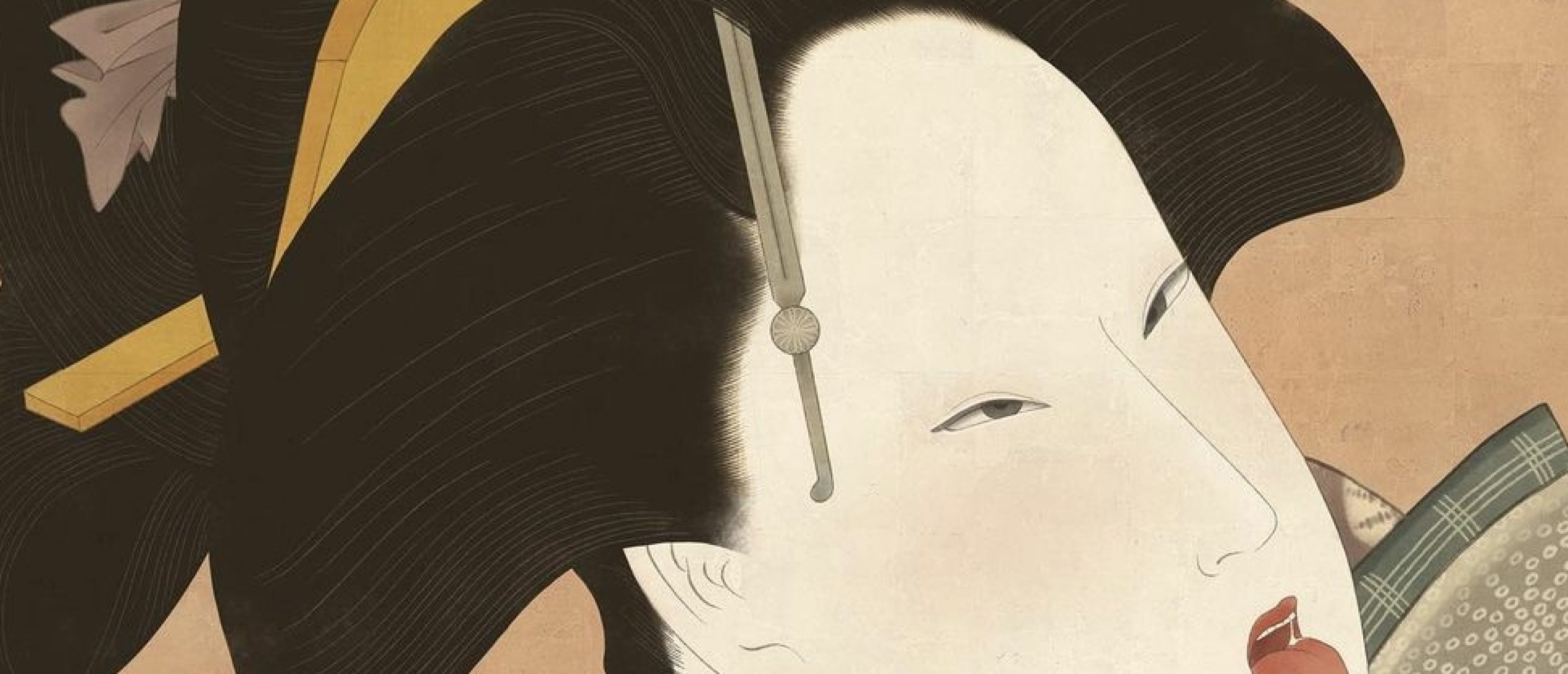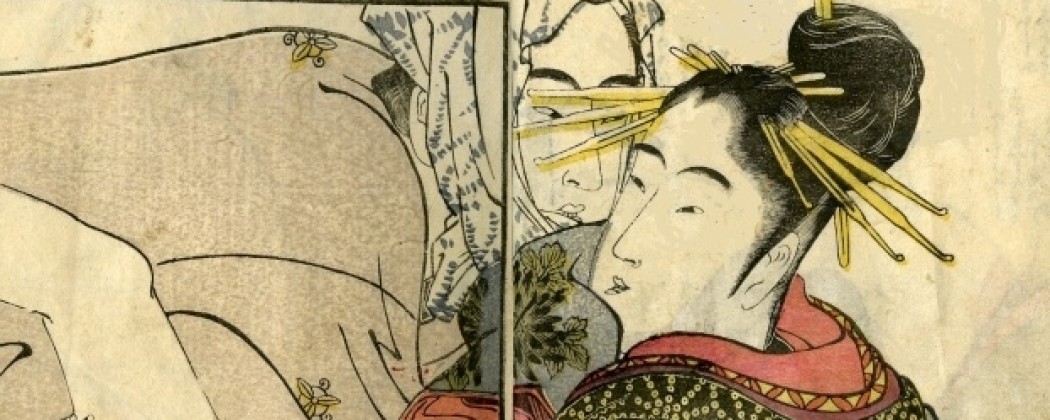
Today we’ll study the Kitagawa Utamaro (1753-1806)’s Picture-book: Dew on the Chrysanthmums (1786). It is one of his scarce early shunga books and precedes his acclaimed album Poem of the Pillow (Utamakura), which was issued in 1788. The series initially appeared in black and white (sumizuri-e) and was later reprinted with additional color blocks.
Settei and Kiyonaga
One of the striking features of this book is how Utamaro has exploited the double-page format by the running on of the composition (see Fig.1. and 2) forming a diptych. The resulting elongation of the composition is reminiscent of the work of Tsukioka Settei (1710-1787) and of Torii Kiyonaga (1752-1815)’s The Sleeve Scroll (Sode no maki, 1785).
Handscroll
Below you can find two double-page illustrations that form one design. The two scenes, however, are not related. In this respect they mimic the structure of a handscroll. In Fig.1. the text transfers the interest of both parties in their respective pleasure quarters.
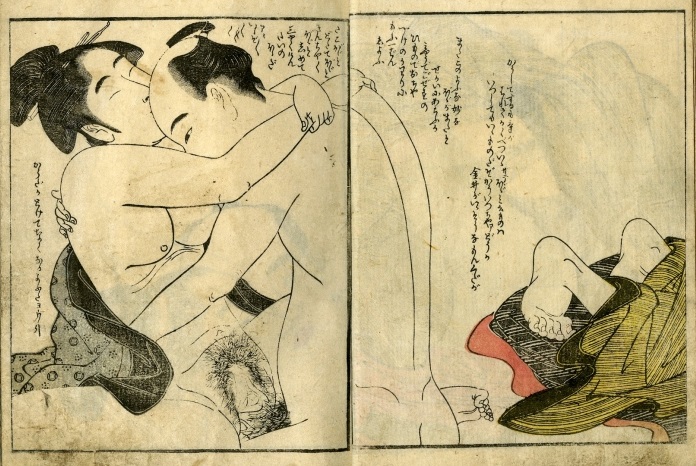
Fig..1. ‘Married intimate couple’ (c.1786) from the series ‘Ehon kiku no tsuyu (Picture -book: Dew on the Chrysanthemums)‘ by Kitagawa Utamaro
Octopus Pussy
In Fig.2. it is the man who speaks. He praises the quality of the woman’s genitalia and states that she possesses a combination of the three highest ranks of vulvas: the octopus pussy (takobobo) appreciated for its sucking qualities; the trapdoor pussy (todatebobo), appreciated for its ability to hold onto the male member; and the purse pussy (kinchakubobo), praised for its tightness.
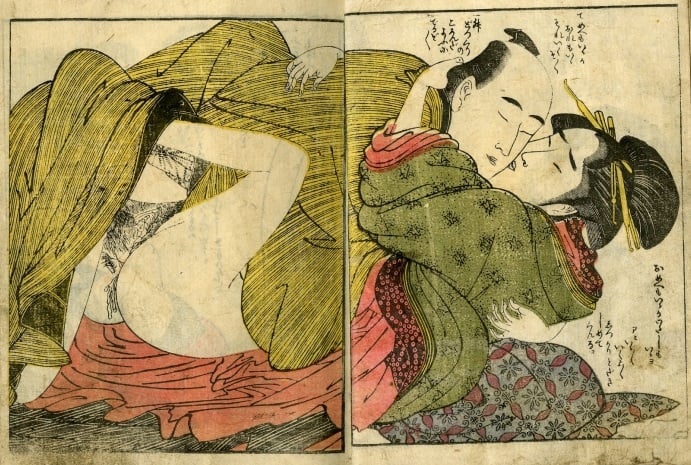
Fig.2. ‘Woman with high-quality vulva’ (c.1786) from the series ‘Ehon kiku no tsuyu (Picture -book: Dew on the Chrysanthemums)‘
Head of the Penis
Fig.3. features a striking scene that almost fills the entire page, with the head of the penis making its appearance into the image in the lower left. This encourages the reader to turn the page for the following scene.
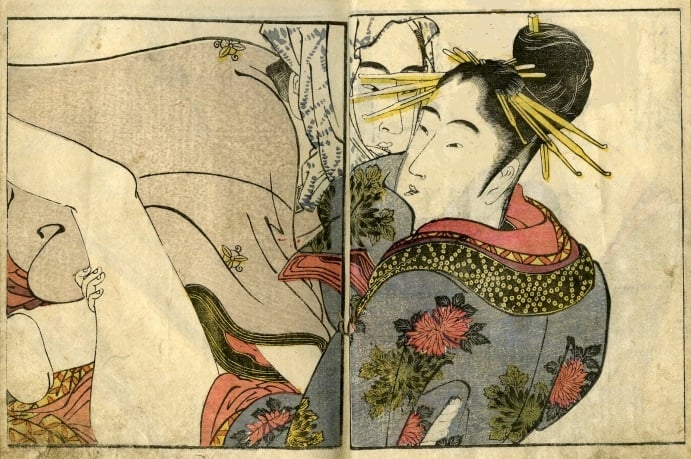
Fig.3. ‘Half-length portrait of an intimate couple’ (c.1786) from the series ‘Ehon kiku no tsuyu (Picture -book: Dew on the Chrysanthemums)‘
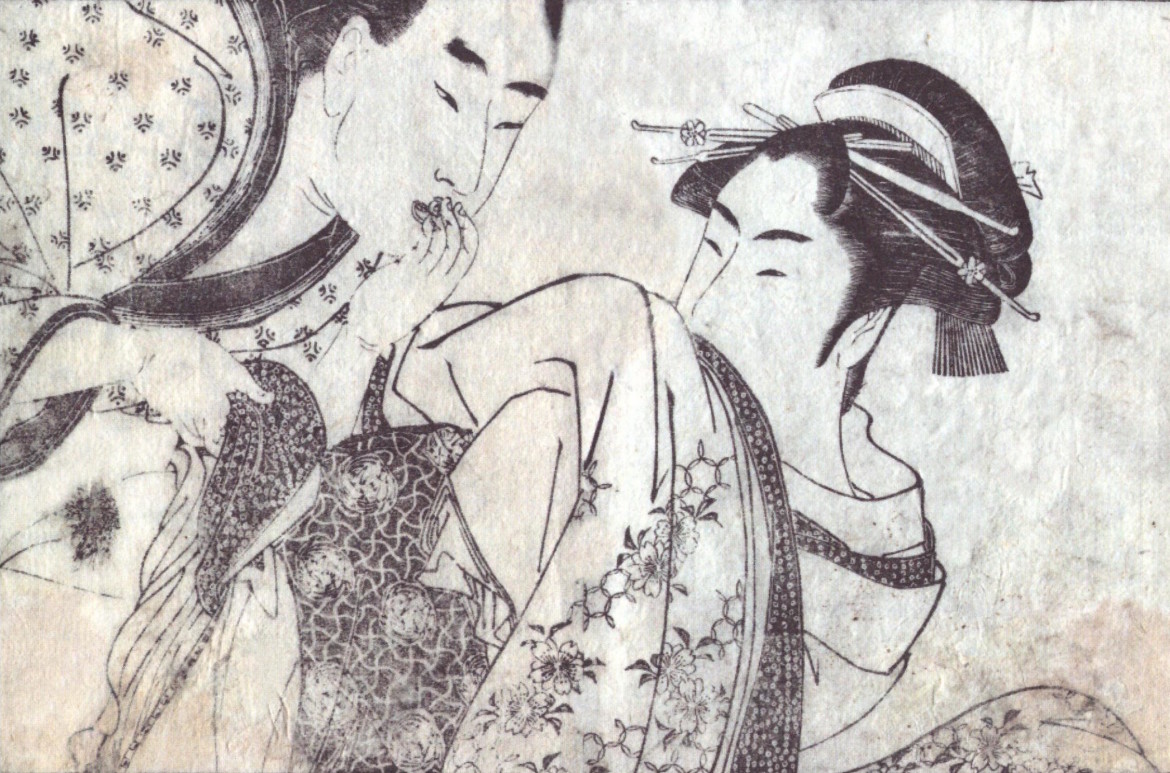
Fig.3a. First edition in black and white*
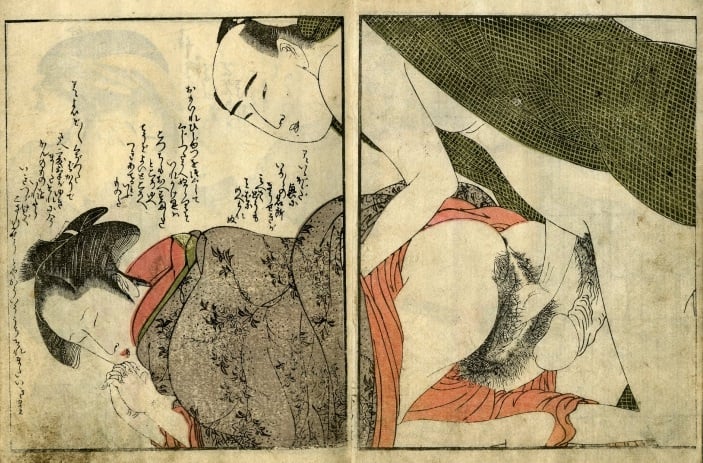
Fig.4. ‘Widow and Secret Lover’ (c.1786) from the series ‘Ehon kiku no tsuyu (Picture -book: Dew on the Chrysanthemums)‘
Hairy Vulva
This design (Fig.4.) delineates the theme of the lascivious widow and her secret lover. The very hairy vulva is an indication that it concerns an older woman.
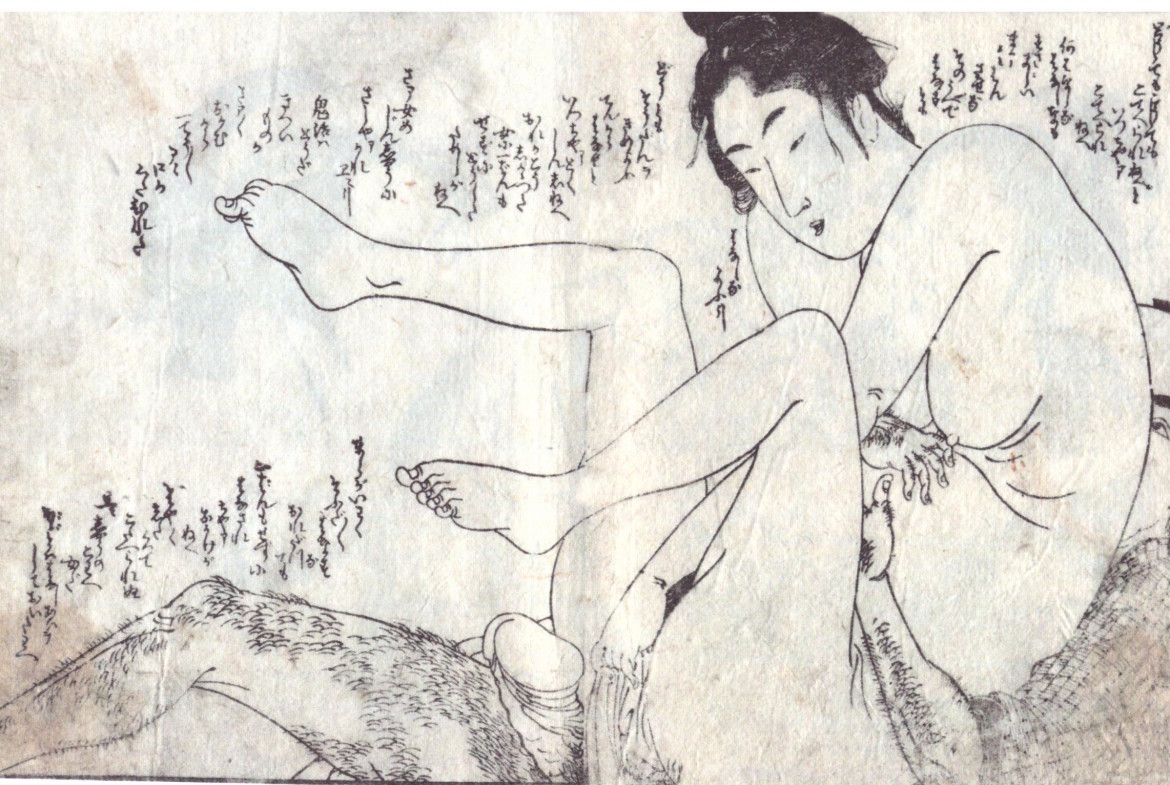
Fig.5. ‘Wild encounter with a nude lady sitting on top of a hairy man‘ (c.1786) from the series ‘Ehon kiku no tsuyu (Picture -book: Dew on the Chrysanthemums)‘ (First B&W edition)*
Click HERE to examine more shunga art by Kitagawa Utamaro…!!!
Click HERE for original Utamaro shunga for sale..!!
Source: ‘Japanese Erotic Fantasies – Sexual Imagery of the Edo Period‘ by Chris Uhlenbeck
* Source of the images of the b&w prints is: ‘Сюнга. Откровенное искусство Японии / Shunga. Explicit art of Japan‘, 2016. Authors: A. E. Pushakova, K. G. Danelya.

